10 ancient practices which to us today is very difficult to understand
Categories: History
By Pictolic https://pictolic.com/article/10-ancient-practices-which-to-us-today-is-very-difficult-to-understand.htmlAfter centuries of tradition and fashion are changing. Once our ancestors in order doing that now would be shot down us off. About a dozen of these strange customs, read below.
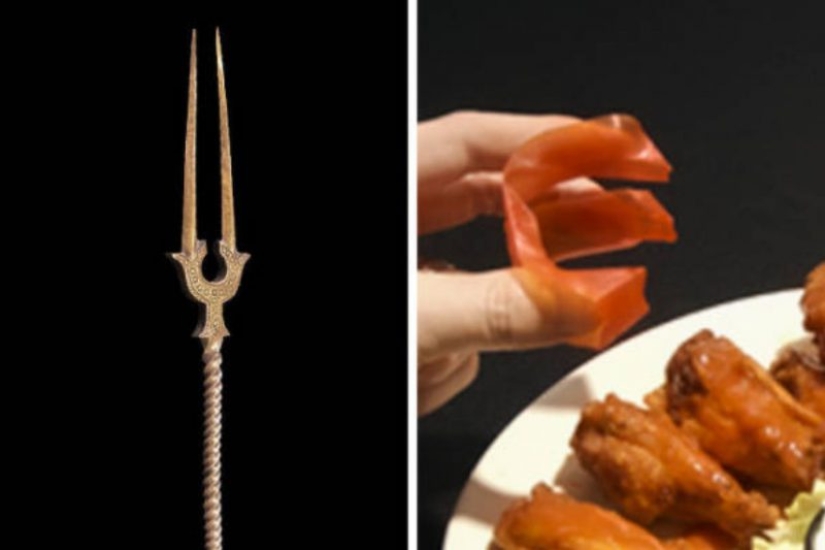

In the XI century, the balcony was used as cover for archers: so they could have a better aim and have good visibility. At the same time the lower part of their bodies were hidden behind the thick walls.
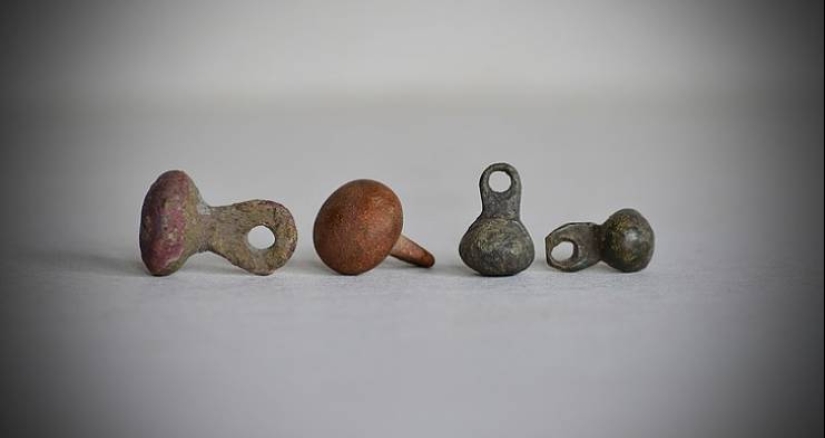
In ancient times buttons were considered jewelry and clothing were made of stone. The first garments with eyelets appeared only in 2000 BC.

The umbrella was invented in China and Egypt in the XI century BC to protect from sunlight. In both countries it was considered a symbol of power, so use it could only members of the Royal family. Interestingly, while the weight of the umbrella is approximately 1.8 kg and its length up to 150 cm.
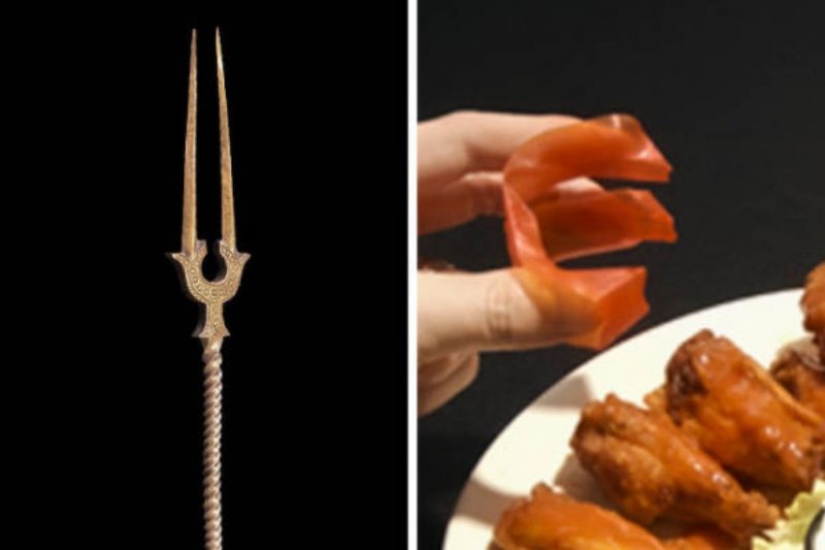
Fork as Cutlery steel to use in Byzantium until the eleventh century. At first it was a 2 spikes, which impale the food. But before this item is considered a weapon of the devil, so the use of forks was strictly forbidden.
For example, the Byzantine Princess was condemned by the clergy of Venice for the use of the fork while eating. According to them, the girl had to use their fingers, which were "natural forks given to us by God." Soon, however, the plugs have become a common part of aristocratic lifestyle, while the poor continued to eat with your hands.

In ancient times the Romans invented Larry — "distant relative" of a modern wardrobe. It was a deep recess in the wall, closing doors. And kept it is not clothes or food, as we do, and cult objects such as statues of gods or tufts of hair of young men that have passed a rite of passage in men.

It is believed that the Romans were the first people in Europe who started to use the sofas. On them they could relax after the meal and talk with your guests. But lying on the sofa only to the rich man. Women, children and slaves had to sit on the stone benches.

In the XV century, the bed has become an integral part of the houses, but was not used in the same way as today.
The hosts and guests slept together in one bed. Secondary space was reserved for a woman and her husband. Thus, they can perform their marital duties. The twin beds were not very popular because it was hard to heat all the rooms to keep the house warm.
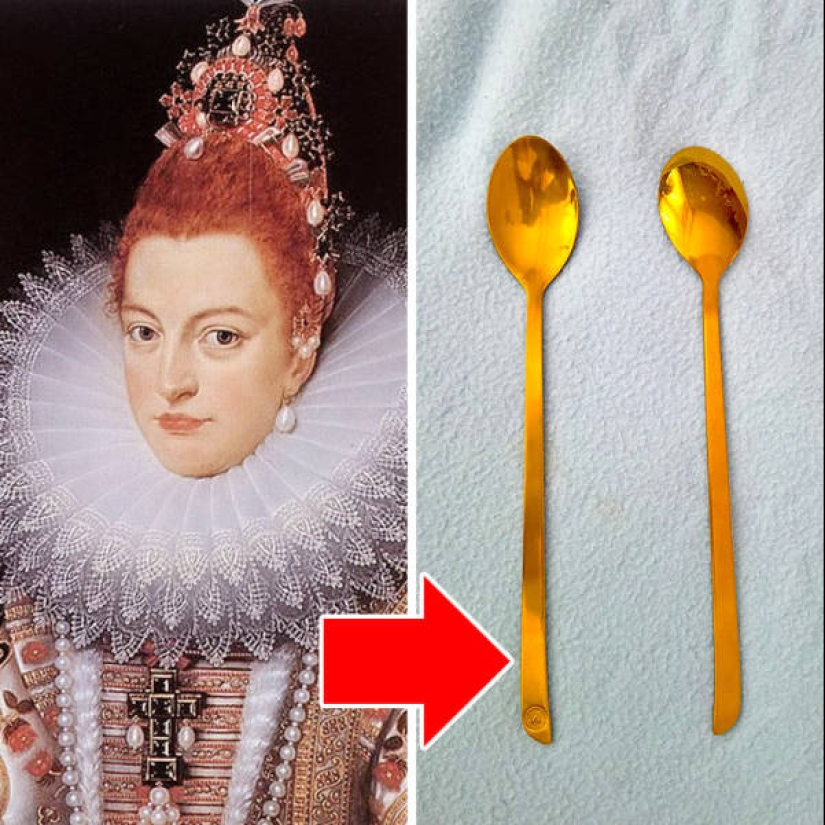
In the XVII century in Europe, it became fashionable to wear a huge frill — solid trim blouse or dress in a frill of cloth or lace. But the people who used it faced a problem: they could not reach the mouth of an ordinary spoon. Here is the extended version of the spoons, such as the one we use today for mixing cocktails or eating ice cream.

The first public toilets was a open space without partitions. They usually had no Windows, so dark was added a little bit of privacy. The toilets were not divided into sections for men and women: both sexes could be in them at the same time.
Nearly every seat was hung a strong rope, but it is used not for washing. With its help, people (usually drunk men) who inadvertently fell into the hole, he was able to stand up. Otherwise, they would have to call for help.
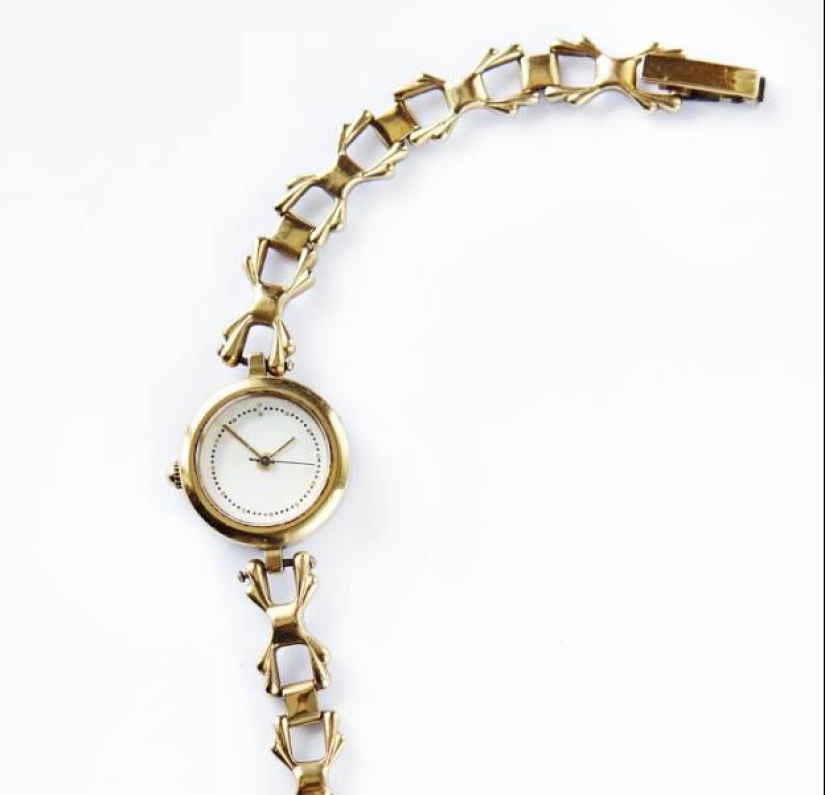
In 1571 Queen Isabella received the gift of a wrist watch. Since then and until the XX century these watches were called the "watch bracelet" and was intended for women only. Men's wrist watch came into fashion only in the 1900-ies and at first they were used exclusively by the military, after all, watch the time on the pocket watch, they were uncomfortable.
Keywords: Antiquity | Interesting customs | Strange
Post News ArticleRecent articles

It's high time to admit that this whole hipster idea has gone too far. The concept has become so popular that even restaurants have ...

There is a perception that people only use 10% of their brain potential. But the heroes of our review, apparently, found a way to ...
Related articles

Extreme gastronomy from different parts of the planet can cause tremors and awe even the most jaded consumer. Canned bread and pork ...

Some people constantly complain about the lack of imagination. And I think we understood what it is… Just created the Earth, ...

Colin and Kristin Poole are an amazing creative family. Colin is a world-renowned artist, and his wife Kristin is a wonderful ...

New Year's is a time to surprise and delight loved ones not only with gifts but also with a unique presentation of the holiday ...